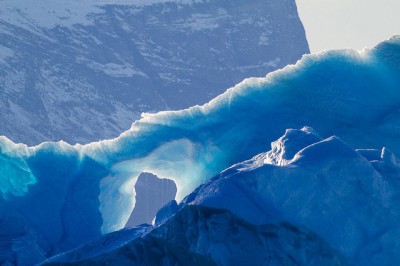Melting Arctic and Antarctic Ice Sheets, Rising Oceans: The High Price of Delayed Action on Climate Change

New research (February 20, 2018) in Nature Communications found that in the 168 years that have passed since the beginning of the Industrial Revolution, the world’s oceans have risen a total of about 8 inches. The study also found that for every five years we avoid our obligations under the Paris Agreement and delay on reining-in our greenhouse gas emissions, the world can expect another 8 inches of sea level rise.
To put this finding in perspective, that means that for every five years we continue business as usual, sea levels will rise as much as they rose in the entire past 168 years. “This is the same amount we have experienced… since the beginning of the fossil fuel economy,” the study’s principal investigator, Matthias Mengel of Germany’s Potsdam Institute for Climate Impact Research, told Agence France Presse.
Consequently, the trajectory of emissions in the next few decades will shape our coastlines in the centuries to come.
This finding is in line with research published recently in Science Advances, which predicts that most wetlands along the west coast of the United States will be submerged by rising ocean waters by the end of this century. “Pacific coast tidal wetlands are at imminent risk of submergence with projected rates of rapid [sea level rise],” the authors concluded.
Even more disturbing, these estimates are very likely to be on the low side—although exactly just how low is still open to debate.
There is evidence that the current rate of sea level rise from the melting Antarctic ice sheet may be twice what had previously been estimated, said Tim Naish, director of the Antarctic Research Center at New Zealand’s Victoria University of Wellington, at the Pacific Climate Change Convention in Wellington. “We may have underestimated the Antarctic contribution by 1 meter (3.3 feet) by the end of the century. So, add another meter to the one meter we’re already predicting for global sea level,” he said. That’s nearly seven feet total, with the water levels accelerating in that direction.
Meanwhile, even greater rates theoretically could be occurring, with some outlying sea-level rise estimates projecting one meter of sea-level rise for every five years’ delay—though these estimates are far from the median. But just because some estimates lie at the far edge of the scale, that does not mean they can’t happen. (And if they do turn out to be correct, their impact could be devastating.)
The take-away from all these facts and figures? “Large ice loss seems possible even under modest warming in line with the Paris Agreement. A sea level rise of up to 3 meters [nearly 10 feet] by 2300 cannot be ruled out,” said Mengel, citing just the more moderate estimates that lie close to the median. That would put parts, if not all, of some low-lying nations and almost the entire state of Florida—home to Mar-a-Lago, the “winter White House” of President Trump—under water.

